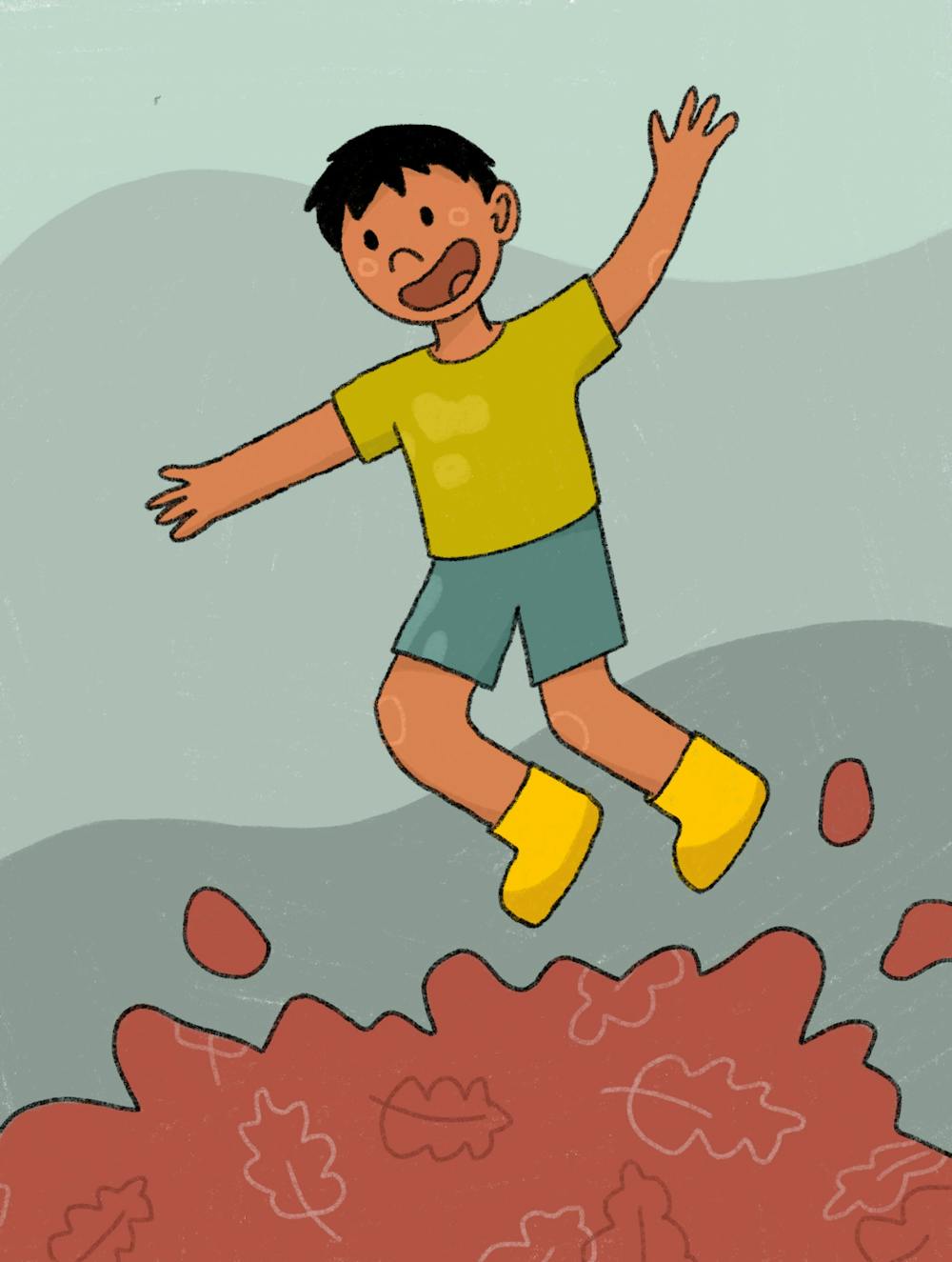TimberNook, a nature-based child care resource for Athens County, launched Aug. 19 in Nelsonville, Ohio. The childcare option provides nature-based, child-led play experiences that inspire children to be creative, independent and imaginative.
Founded in 2010 by pediatric occupational therapist Angela Hanscom, TimberNook began as a backyard experiment on nature’s therapeutic benefits, according to Erin McLaughlin, a former kindergarten teacher and current TimberNook certified provider.
McLaughlin said Hanscom’s perspectives drew her to the organization.
“I just happened upon her book, 'Balanced and Barefoot,' and as I was reading it, I was agreeing with everything she was putting forth,” McLaughlin said. “I learned that you can become a licensed provider for TimberNook, so I set about that process.”
Once McLaughlin finished her training, she launched TimberNook Athens County in Nelsonville on sentimental land.
“My family has a farm in Nelsonville, and it’s been in my family for over 100 years,” McLaughlin said. “A part of our life is down here, and I thought, well, this would be great.”
McLaughlin says TimberNook’s uniqueness stems from their perspective on play in child development.
“The difference is most other organizations or programs are all adult-directed activities with objectives,” McLaughlin said. “The difference with TimberNook is that it’s really, authentically child-focused and developmentally appropriate … This model really isn’t replicated anywhere else.”
According to McLaughlin, play is the only and most vital occupation of children.
“Creative, child-led play and nature not only offers those substantial therapeutic benefits, but it also increases physical activity,” McLaughlin said.
The significance of play is recognized by other child care resources in Athens County.
Ohio University’s Child Development Center, or CDC, was opened in 1947 as the Putnam Nursery School. The school was renamed the Child Development Center in 1980.
According to Kristin Barron, Director of the Child Development Center, play is central to the CDC’s curriculum.
“(Our teachers) are building emergent curriculum where they are working alongside the children,” Barron said. “Oftentimes, this does start through play. In play, children are expressing ideas, they are exploring ideas, they are making theories about how the world works.”
According to Barron, the CDC utilizes its unique location to foster outdoor and free play.
“The Ridges is a really great context for us,” Barron said. “(The children) are able to explore in the area, take walks and hikes and be part of the natural world that’s here … our history and our location are part of the things that make us pretty unique.”
Casadie DiBetta, a junior studying early childhood and elementary education, believes free play was pivotal to her childhood development.
DiBetta said play made up most of her childhood. Playing outside was an essential part of how she spent her time.
“I liked that there weren’t boundaries or rules with play,” DiBetta said. “I could be who I wanted to be and felt this was a crucial part to my development. Children are so creative, but schools can discourage their drive of creativity and stepping outside of the box.”






